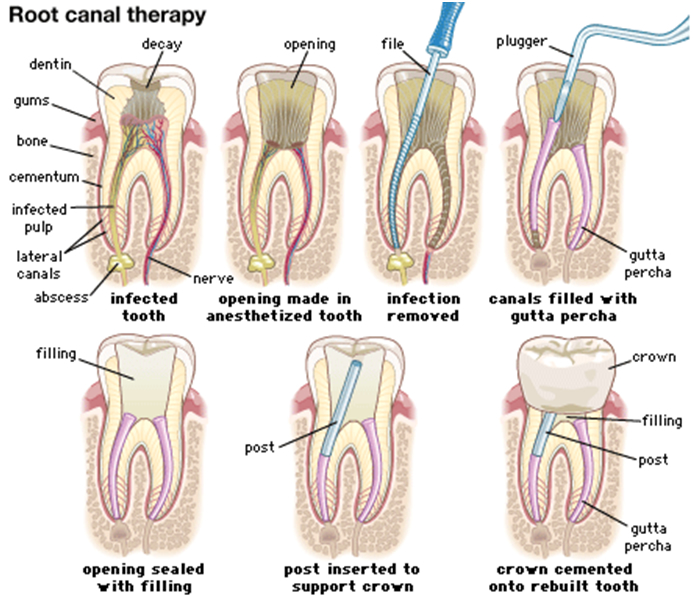
12 Oct Cavities: Signs and Symptoms
A cavity is an area of permanent damage on the hard, outer surface of a tooth; the damage caused can develop into a hole or tiny opening within the tooth. Cavity damage is caused by any one of numerous reasons, but the most common and most frequently thought of reason is sugar. Sugar in both food and drink help bacteria to thrive and feed and make acid causing plaque that damages the tooth’s surface. Another common reason as to why a tooth develops a cavity is improper or poor oral hygiene.
If you have a cavity, even as an adult (sometimes people have the misconception that only children get cavities), know that it is a very common problem for all people in the world. The damage caused by cavities becomes especially pronounced when the cavity is allowed to persist, untreated. The cavity can grow and grow and the layers of the tooth most affected by the cavity get progressively deeper—and more invasive to treat as well.
Symptoms of a Cavity:
From Infant to Adulthood
Depending on the location and the severity of the initial cavity, symptoms vary. Initially the cavity may not be accompanied by symptoms. Common symptoms include toothache and spontaneous pain—usually the pain and discomfort associated with a cavity occur without any apparent cause. A person with a cavity may also experience a sharp or uncomfortable pain in the damaged tooth. When he or she inspects the teeth in the mirror he or she may notice a small spot—black, brown, or white—on the surface of the tooth. He or she may even experience pain in the jaw—the offending tooth may not cause pain at the sight of the cavity but in the jaw.
It’s important to see your dentist at Silver Creek Family Dental at the first sign of a possible cavity. The sooner your dentist gets to the damage the easier it will be to treat. Also, because your dentist at Silver Creek Dental can detect cavities and other dental issues before a patient becomes symptomatic, it’s important to keep with a regular checkup schedule and terrific oral care routine.

No Comments